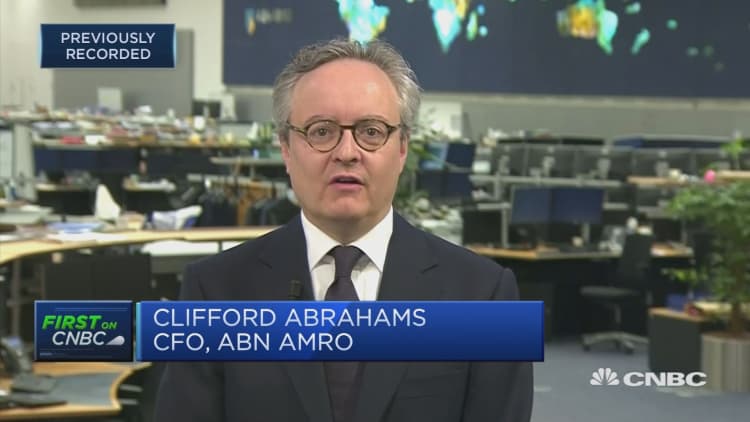
Dutch bank ABN Amro on Wednesday reported an unexpected rise in second-quarter profit, despite incurring extra costs from its efforts to detect money laundering, as interest income rose and impairments on bad loans dropped.
"Recently, the Dutch central bank determined that we are to review all our retail clients in the Netherlands," Chief Executive Kees van Dijkhuizen said in a statement.
This order followed a record $900 million fine paid by rival ING in September last year for failing to spot criminal activities financed through its accounts for years.
ABN said it took extra measures to increase customer due diligence at a cost of 114 million euros ($128 million) in the second quarter, adding that investigations might lead to instructions or fines by the authorities.
Despite the extra expenses, ABN reported a 1% rise in second-quarter net profit to 693 million euros.
That topped the 638 million euros analysts had expected, according to a company-compiled poll, and was up from 688 million a year earlier.
Higher dividends possible
ABN said it would consider extra pay-outs to shareholders as its capital buffer remained strong in the second quarter.
"We are within the capital target range and expect to be well placed to consider additional distributions of above 50% of sustainable profit at full year results," Van Dijkhuizen said.
The bank's core capital adequacy ratio remained stable at 18% at the end of June, while its cost-to-income ratio dropped to 56.4%, also meeting the bank's long-term goal.
ABN, which since its bailout by the Dutch state in 2008 has focused its operations on the domestic market, said second-quarter profits were helped by ongoing strong economic growth in the Netherlands.
But it added that the economic outlook was weakening, while interest rates had continued to come down during the quarter, which could make it harder to sustain interest income gains.
ABN Amro shares have lost 40% of their value since reaching a peak of 28 euros on Jan. 12 as investors worry about the effects of enduring low interest rates for bank earnings.
ABN Amro was partially re-privatized in 2015, but the state still holds a 56 percent stake.

